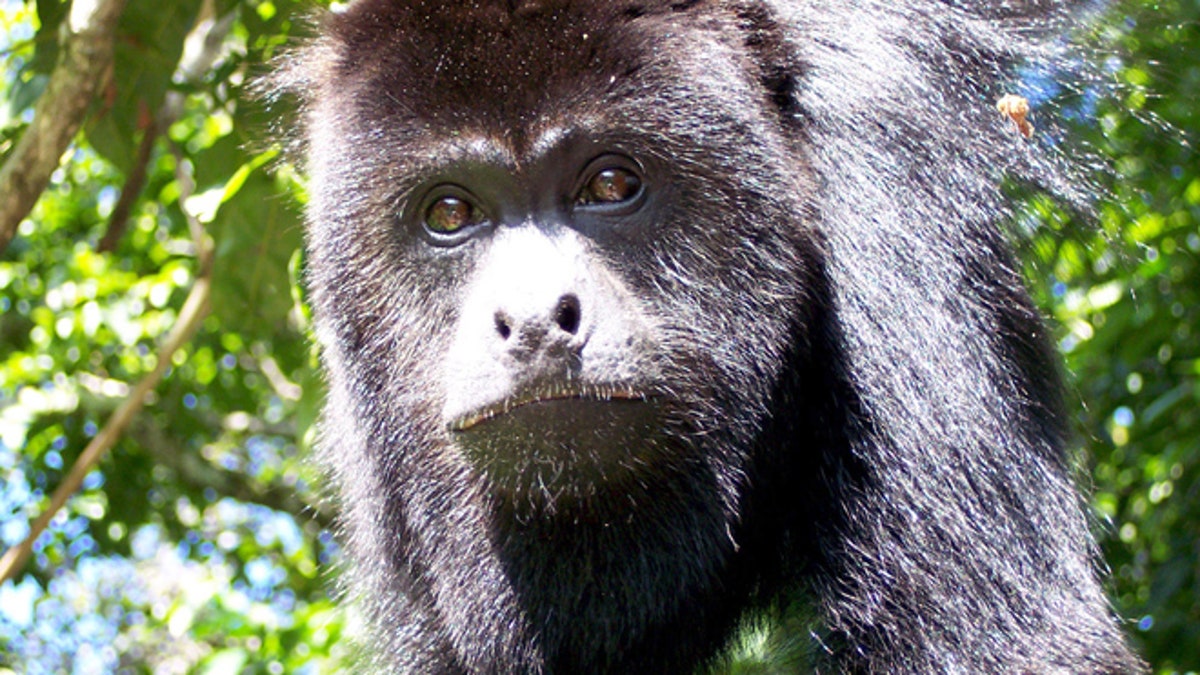Vaccine Cures HIV-Like Virus In Monkeys, Potential Human Trials In The Works
{{#rendered}} {{/rendered}}
** FOR IMMEDIATE RELEASE **A rare black howler monkey dangles from a branch in the Community Baboon Sanctuary at Bermudian Landing in Belize, Central America, on Dec. 24, 2005. Some 200 private land owners voluntarily protect 20 square miles of habitat for the monkeys, whose population now exceeds 2,000. (AP Photo/Vicki Smith) (AP)
Researchers have achieved a potential major breakthrough in the treatment of HIV after successfully curing monkeys of the equivalent of the virus.
The American scientists published their findings this week in Nature, an international science journal, showing a vaccine was able to eradicate the Simian Immunodeficiency Virus (SIV) in monkeys.
"It's always tough to claim eradication — there could always be a cell which we didn't analyze that has the virus in it,” Louis Picker of the Vaccine and Gene Therapy Institute at Oregon Health and Science University, said to BBC News.
{{#rendered}} {{/rendered}}“But for the most part, with very stringent criteria... there was no virus left in the body of these monkeys."
Based on a virus in the herpes family known as cytomegalovirus (CMV), the vaccine kept the monkeys clear between 18 months and three years after they were treated.
While the vaccine was not successful in all of the test animals, 9 out of the 16 were cured.
{{#rendered}} {{/rendered}}Picker attributes this discrepancy to the fact that "SIV is so pathogenic that this is the best you are ever going to get."
"There is a battle going on, and half the time the vaccine wins and half the time it doesn't,” she added.
Following this outcome, the scientists want to follow a similar approach to test the vaccine on humans.
{{#rendered}} {{/rendered}}However, before this is done tests will be made to make sure the vaccine is “absolutely safe.”
If all goes according to plan, the first clinical human trials could be done within the next two years.
"This suggests that prophylactic vaccines – vaccines designed to prevent infection – using CMV vectors may be a promising approach for HIV,” said Dr. Andrew Freedman of the Cardiff University School of Medicine
{{#rendered}} {{/rendered}}"While they may not prevent the initial infection, they might lead to subsequent clearance, rather than the establishment of chronic infection."
Follow us on twitter.com/foxnewslatino
Like us at facebook.com/foxnewslatino
